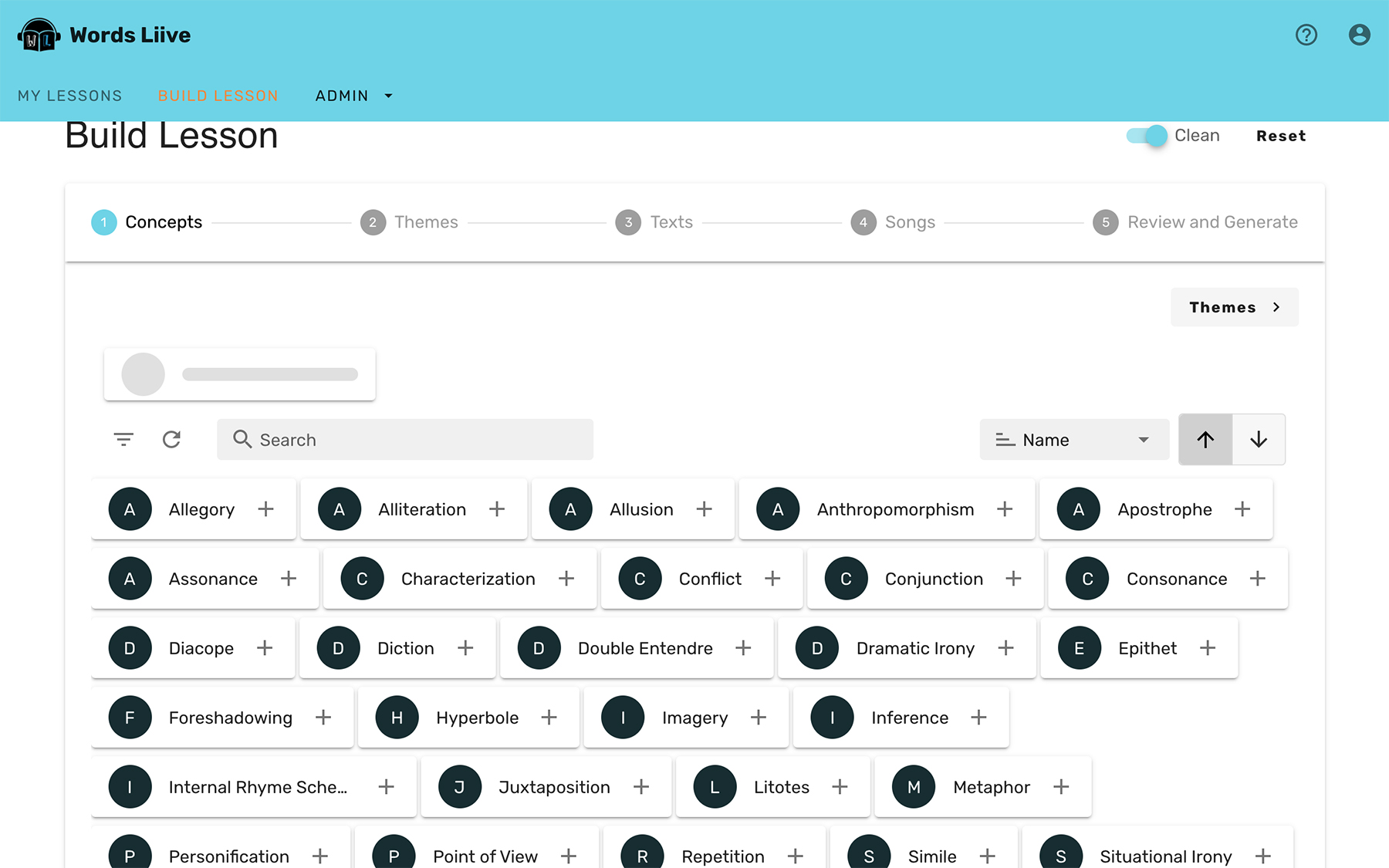As the new school year heats up, DC’s Sage Salvo has a new product heading into the edtech market.
The entrepreneur and founder of Words LIIVE, the platform that lets students compare literature texts with popular songs that was recently a semifinalist in the GSV Cup, just launched a new offering to engage students with music.
The Opus, which launched in early September, develops curricula for teachers using popular songs in a matter of minutes, all in the name of helping literacy in public schools.
“The cool thing about music is there’s literally new content every single week,” Salvo told Technical.ly. “Obviously, some weeks are more action-packed than others, but it’s perennial. It’s an evergreen source.”
On a web platform that was built using Javascript, teachers can input a learning objective and the artist/genre/songs their students like, and The Opus will develop lesson plans based on an education concept, say subject-verb agreements or topic sentences.
This can include providing slides, activities, assessments and YouTube videos, of which teachers can use as little or as much as they’d like. Salvo said the company is also working on adding machine learning capabilities to keep content up-to-speed, but according to him, the Opus currently completes what he estimates to be about two hours of work in about two minutes.
The results, Salvo said, both save teachers time and keep students engaged through popular culture. It aims to create a new way for students to learn, and for teachers to maintain their interest, he said. That has huge implications for building literacy in DC public schools.
“We’re really, really focused on literacy,” Salvo said. “It’s a huge problem in our communities, it’s a huge problem in DC public schools. They’re making some strides, but what we’re really trying to do is prepare kids to be much more literate adults in the future.”

The Opus, which is formally a separate nonprofit entity from Words LIIVE, currently has a few hundred songs on its platform, but Salvo said it’s soon to be in the thousands. He’s also working on an agreement with YouTube, since the app pulls from that platform for content.
Although he’s been working in the student engagement and literacy space since Words LIIVE’s launch in 2015, Salvo noted that now is a particularly crucial time for resources like The Opus.
According to Salvo, scores in the National Assessment of Educational Progress have gone down over the past 20 years, despite the fact that edtech spending has gone up (EdTech Evidence Exchange corroborates this, noting that about half of all education technology is used ineffectively, materially underused or unused at all.).
This illustrates a need, he said, for more human-based, creative design in edtech tools.
“It’s like, ‘Okay, you have this increased investment in tech tools, but you have declining national performance,'” Salvo said. “So, obviously we’re doing something wrong and I do think a little bit of it is a design flaw.”
Going forward, Salvo said the company is on track for growth as the school year picks up. Over the past 18 months, he said The Opus worked with over 4,500 teachers and parents in is beta testing stage, and he hopes to move many of those to the paid model going forward.
The company is also in the midst of completing a $125,000 funding round from investors including AT&T and Camelback Ventures, as part of a $500,000 seed funding round that will be put primarily towards hiring.
But all in all, he hopes the Opus can continue the journey of engagement he began with Words LIIVE.
“Cultural relevance is our big stickler with the students. That’s why they love us and they get to look at stuff in a different way, right?” Salvo said. “They’re listening to music but they’re having fun with it, and it’s a little different when you get to evaluate music, and that’s where we come in, what we ask them to do. That’s the big value proposition for the kids.”







